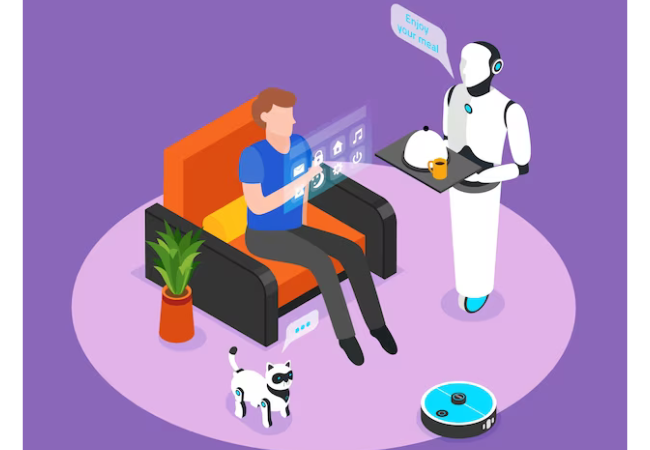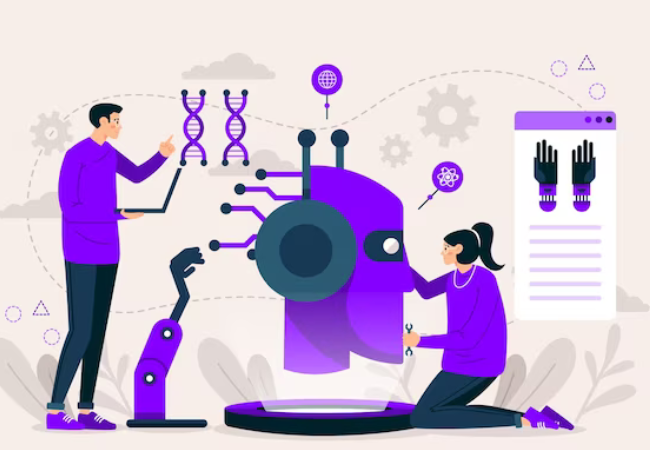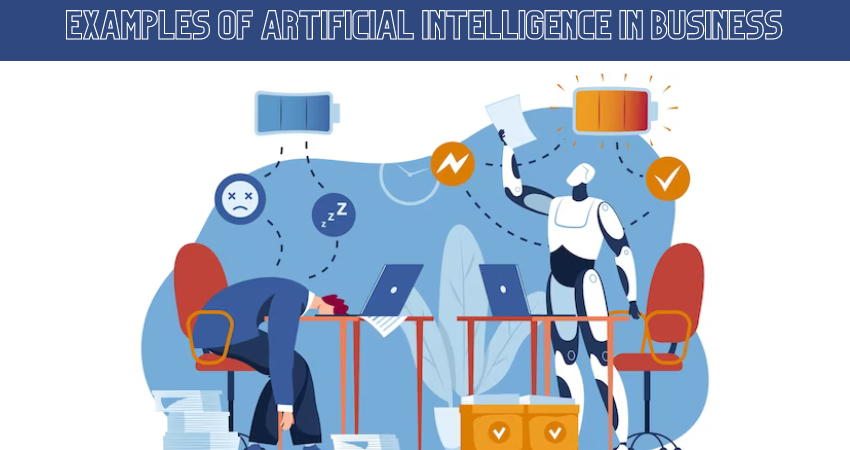Learn how key business functions are changing as a result of artificial intelligence (AI). Explore 25 real-world examples of how AI is being used in areas such as marketing, operations, finance, and more. Discover the business applications of AI in the future.
Examples of Artificial Intelligence in business
Artificial intelligence (AI) has changed the way organizations operate all around the world by improving productivity, efficiency, and decision-making in a variety of fields. We’ll look at 25 examples of how AI is changing the world of business in this blog article.
Examples of AI for Customer Service
1. Chatbots
These AI-powered virtual assistants engage with customers, answer inquiries, and provide support 24/7.
2. Virtual Assistants
AI-driven virtual assistants schedule meetings, book travel, and manage tasks, saving valuable time for employees.

3. Predictive Customer Support
AI analyzes data to predict potential issues and resolves them before they escalate.
4. Personalized Customer Recommendations
AI algorithms suggest products and services based on customer behavior and preferences.
Examples of AI for Marketing and Sales
5. Targeted Advertising
AI optimizes ad targeting by analyzing user data and behavior.
6. Lead Generation
AI tools identify and qualify potential customers, streamlining the sales process.
7. Sales Forecasting
AI predicts future sales by analyzing historical data and market conditions.

8. Social Media Monitoring and Analytics
AI tools track and measure social media engagement, providing insights for marketing strategies.
Examples of AI for Product Development
9. Voice of the Customer Analysis
AI extracts valuable insights from customer feedback and reviews.
10. Market Research
AI helps businesses understand customer needs and competitive landscapes.

11. Product Design and Prototyping
AI generates and tests new product ideas efficiently.
12. Testing and Quality Assurance
AI identifies and rectifies bugs and defects, ensuring product quality.
Examples of AI for Operations
13. Supply Chain Management
AI optimizes the flow of goods and materials, reducing costs and delays.
14. Inventory Management
AI tracks and optimizes inventory levels, preventing overstock or shortages.
15. Workforce Optimization
AI-based scheduling and management tools enhance workforce efficiency.
16. Risk Management
AI identifies and mitigates potential risks to the business.
Examples of AI for Finance and Accounting
17. Fraud Detection
AI algorithms detect and prevent fraudulent transactions in real time.

18. Financial Forecasting
AI predicts future financial performance based on historical data and market trends.
19. Accounting Automation
AI automates tasks like invoice processing and bookkeeping.
20. Tax Preparation
AI helps businesses prepare and file accurate tax returns.
Examples of AI for Other Business Functions
21. Human Resources (HR)
AI automates HR tasks, including recruitment, onboarding, and performance management.
22. Legal
AI aids with tasks such as contract review and litigation support.
23. Research and Development (R&D)
AI accelerates the R&D process, aiding in innovation.
24. Cybersecurity
AI detects and prevents cyber threats, enhancing data security.
The Future of AI in Business:
Artificial Intelligence is set to continue its transformational impact on businesses. As AI technology evolves, more innovative applications will emerge, further optimizing operations and improving customer experiences. To stay competitive, businesses must embrace AI's potential and explore new growth opportunities.
FAQS of AI in Business
1. How can AI benefit customer service in my business?
AI-powered chatbots and virtual assistants can enhance customer support by providing quick responses and 24/7 availability.
2. What AI tools can help improve sales and marketing strategies?
AI-driven targeted advertising, lead generation, and sales forecasting tools can optimize your marketing and sales efforts.
3. How does AI contribute to product development?
AI aids in product design, market research, and quality assurance, accelerating the product development process.
4. What AI applications are available for supply chain management?
AI can optimize supply chain operations by predicting demand, reducing costs, and improving logistics.

